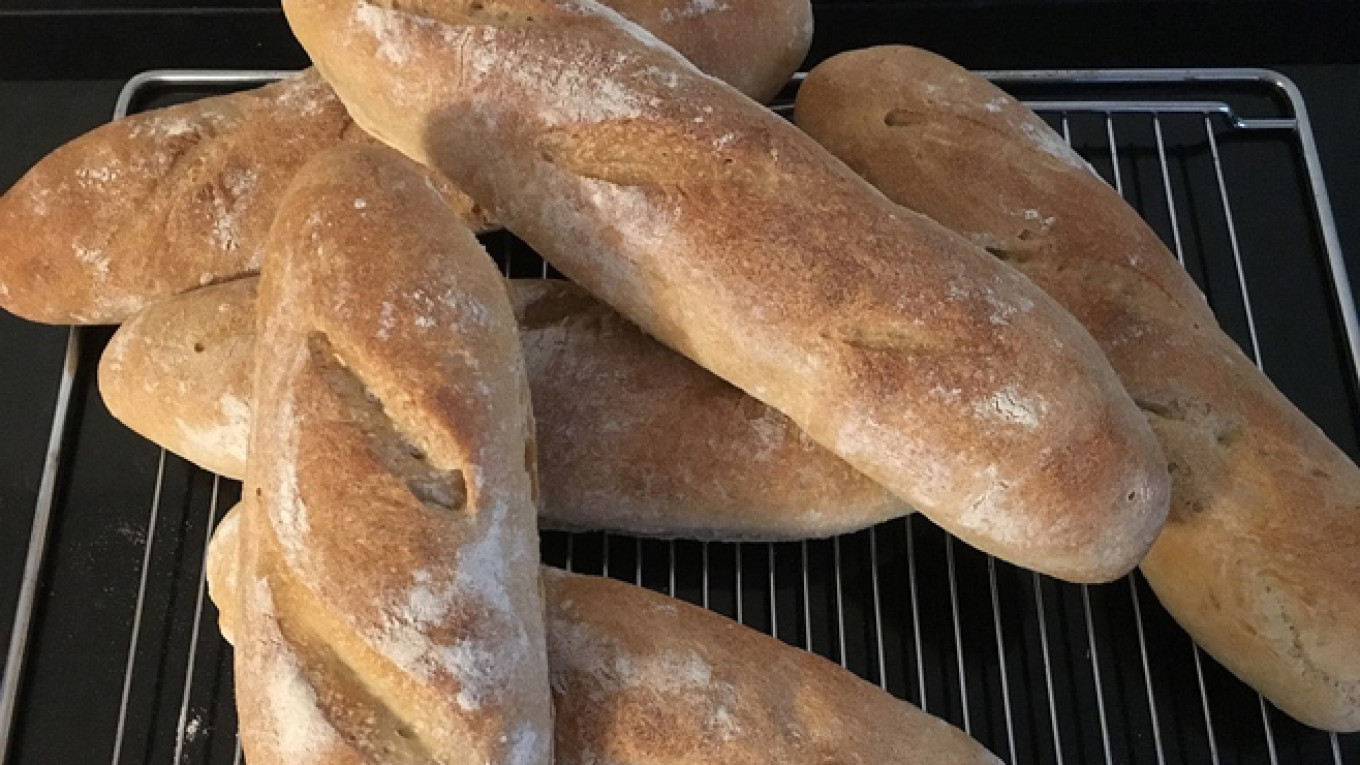Ah, the lament of a Muscovite visiting the northern capital.
Although people in St. Petersburg speak Russian like your teacher in Moscow or Berlin, there are a few peculiarities of language use in the northern capital that you need to know. One is that the word хлеб only refers to black bread. White bread is called булка, which means a roll in other parts of the Russian-speaking world.
And while we're on food: Moscow's курица is St. Petersburg's кура (chicken); it's not гречка but греча (buckwheat groats) up north: and don't look for signs for шаурма like in Moscow, but rather шаверма — called in other places doner kebab, kebab and gyro.
There are a few other words you might not understand. In St. Petersburg, if someone asks if you've seen his трубка, don't look for a pipe. He means his cell phone, which Russians in other parts of the country and world call мобильник. And a mass transit pass called проездной билет down in Moscow, is карточка up north.
If you're using that pass to get around the city and visit friends, you should also know a bit about entrances. In the old part of the city apartment houses usually had two entrances. One was for servants and riff-raff. The more ceremonial main entrance is called парадное, from парадный подъезд (ceremonial entry) that somehow got turned into a neuter adjective with no noun attached. Sometimes they call it парадная. In short: if it sounds like a parade, it's the front door.
And finally, don't get confused by all the city names. First the city was Санкт-Петербург (St. Petersburg), named by Peter the Great in honor of St. Peter, not himself. During World War I, the name was deemed too German-sounding and changed to a Russified Петроград (Petrograd). A few years later, it was renamed Ленинград (Leningrad) in honor of Vladimir Lenin who pulled off a revolution here. Since it was called that during the Nazi invasion and blockade, people say Ленинград и ленинградцы (Leningraders) with pride and respect, even though the city is once again Санкт-Петербург (St. Petersburg).
How do residents deal with all this? Simple. They ignore most of those names and call their hometown Питер (Peter) and call themselves питерцы (Peterites), питерец or питерский for a man, питерская for a woman. For more information on these folks up in Peter, check out a song called В Питере — пить (When in Peter — Drink) by a group called Leningrad.
A Message from The Moscow Times:
Dear readers,
We are facing unprecedented challenges. Russia's Prosecutor General's Office has designated The Moscow Times as an "undesirable" organization, criminalizing our work and putting our staff at risk of prosecution. This follows our earlier unjust labeling as a "foreign agent."
These actions are direct attempts to silence independent journalism in Russia. The authorities claim our work "discredits the decisions of the Russian leadership." We see things differently: we strive to provide accurate, unbiased reporting on Russia.
We, the journalists of The Moscow Times, refuse to be silenced. But to continue our work, we need your help.
Your support, no matter how small, makes a world of difference. If you can, please support us monthly starting from just $2. It's quick to set up, and every contribution makes a significant impact.
By supporting The Moscow Times, you're defending open, independent journalism in the face of repression. Thank you for standing with us.
Remind me later.






